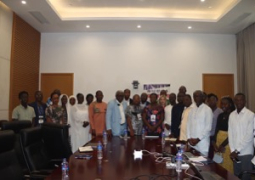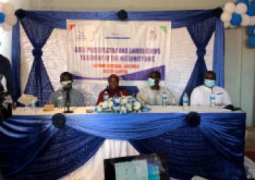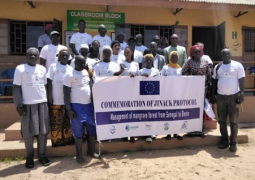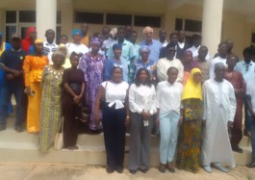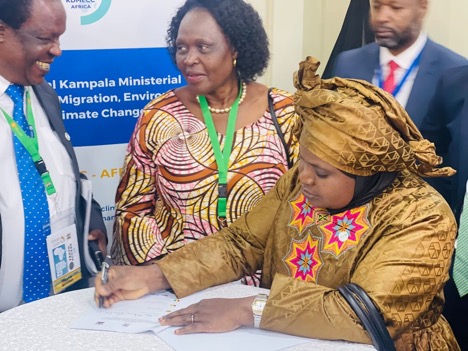
Minister John-Manjang is currently in Nairobi, Kenya to attend the Africa Climate Summit 2023.
The three-day summit is under the theme: ‘Driving Green Growth and Climate Finance Solutions for Africa and the World’.
It brings together leaders and investors from Africa and beyond to share experiences and solutions for a sustainable, resilient Africa.
Besides, this International convergence aims to champion a positive, climate-compatible vision for Africa.
Sessions will focus on adaptation and resilience, renewable energy and sustainable development, and financing for climate action. This initiative followed the Inter-Ministerial Conference on Migration, Environment, and Climate Change (MECC) to address migration issues in the continent, held in July 2022 in Kampala, Uganda.
Commenting on the converge, Rohey Manjang, said this is an opportunity for The Gambia to access support to enter into a legal framework guiding migration issues in the country.
“This will enable our country enter into a legal agreement to formalise the issue of legal migration to have it planned (train the right skills), implemented, and to manage the process for both our interest and that of the receiving countries.’’ she stated.
She revealed that discussions are underway with her counterpart in Uganda, to have The Gambia on the top of the priority list of countries to benefit from the initiative.
Africa, constituting 33 out of the 46 Least Developed Countries, remains the hardest hit by climate change impacts; especially vulnerable African states, despite contributing only about 4 percent to global greenhouse gas emissions.
Extreme weather, fueled by climate change, has pushed around 250 million people into high water stress, while approximately 700 million are expected to be displaced by 2030 due to water-related crises. Without concrete climate and development action, as many as 216 million people in Africa could be compelled to migrate within their countries by 2050 due to slow-onset climate factors.
However, the non-inclusion of large-scale migration in national adaptation strategies, often relegating migration as an adaptation failure, fails to recognise that migration can be a positive adaptation strategy if undertaken in a safe, orderly, and regular manner.
The positive response to the Declaration by African Union Member States and the identified need for a common position and solutions to challenges that all countries in the continent are facing, led the governments of Kenya and Uganda to invite all African Union Member States to participate in the development of a continental expansion of the Declaration (KDMECC-AFRICA).
The Declaration aims to strengthen the existing initiatives aimed at accelerating the implementation of a climate and economy transition in the context of sustainable development. It was signed by member states in the spirit of regional integration, cooperation, and fraternity.
Key commitments in the declaration include: addressing the adverse impacts of climate change on desertification affecting agricultural land, pastoral land, water, infrastructure, oasis areas, ecosystems, and the fisheries sector, which impacts affect both marine and freshwater aquatic resources that rely on the blue economy sustainably; strengthen the existing initiatives aimed at accelerating the implementation of a climate and economy transition in the context of sustainable development among a host of others.


